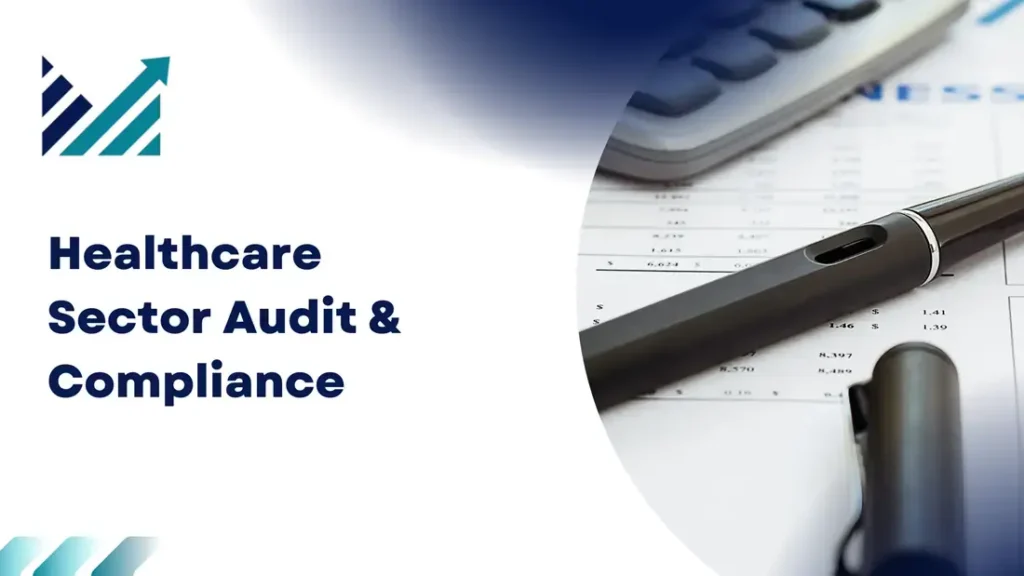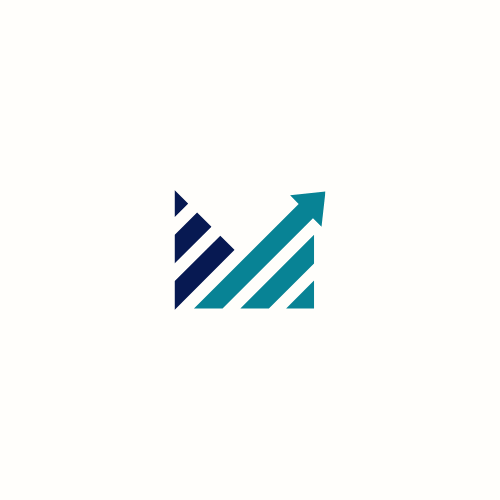
In today’s fast-changing healthcare sector, trust, safety, and compliance are more than legal duties they are moral responsibilities. Healthcare providers in UAE, from small clinics to large hospitals, must follow many rules and standards. These healthcare sector audit rules help protect patient data, ensure quality care, and stop financial problems.
Auditing and compliance help healthcare providers meet these goals. A good audit does more than check legal boxes. It helps find risks, improve systems, and lead to better care for patients.
In this article, we will look at the UAE’s healthcare regulations and the special challenges of auditing in this field. We will also share best practices for audits. In addition, we will explain special audits such as the DOH Ranking Audit, Primary Healthcare Audit, and Jawada Audit. Finally, we will outline the steps to run a successful audit.
Regulatory Framework and Challenges
The healthcare sector in the UAE is governed by several regulatory bodies, each setting standards and compliance requirements to protect public health. Among them are:
- Department of Health – Abu Dhabi (DOH)
- Dubai Health Authority (DHA)
- Ministry of Health and Prevention (MOHAP)
These authorities issue guidelines covering areas such as clinical quality, patient safety, operational efficiency, and data protection. For instance, the UAE Health Data Law regulates how patient information is collected, stored, and shared, ensuring confidentiality and cybersecurity.
However, this regulatory framework also presents challenges:
- Keeping pace with frequent updates to standards and laws.
- Understanding overlapping regulations from multiple authorities.
- Ensuring staff are trained in compliance requirements.
- Aligning audit strategies with clinical and operational realities.
These challenges make structured auditing and compliance essential for healthcare providers.
Unique Challenges in Healthcare Sector Audit
Healthcare auditing is unlike auditing in other sectors. Patient safety, clinical effectiveness, and service quality are central concerns. Below are some of the unique challenges:
- Data Complexity: Healthcare facilities handle vast amounts of sensitive patient data, including electronic health records, insurance details, and lab results.
- Regulatory Changes: Healthcare regulations change frequently. Staying updated is resource-intensive but critical.
- Clinical Auditing: Auditing doesn’t stop at finances; it extends to reviewing clinical pathways, patient outcomes, and adherence to treatment protocols.
- Integrated Systems: Hospitals and clinics often use complex systems linking billing, patient records, and pharmacy services. Errors or non-compliance in one area can affect the whole operation.
- Risk of Non-Compliance: Non-compliance isn’t just a fine—it can result in license suspension, reputational damage, or legal action.
Understanding these challenges is the first step in designing effective auditing processes that truly add value.
Specific Auditing Requirements for UAE Healthcare Providers
In the UAE, healthcare auditing goes beyond financial review. Facilities must demonstrate compliance in areas such as:
- Clinical quality indicators (infection rates, patient readmissions, mortality rates).
- Patient satisfaction and experience.
- Staff licensing and credentialing.
- Facility licensing, renewal, and registration.
- Compliance with the DOH, DHA, and MOHAP quality standards.
- Data protection and cybersecurity.
- Insurance claims auditing to detect errors, fraud, or misuse.
For specialized services, facilities may need to prepare for Jawada Audits, DOH Ranking Audits, and other reviews. These require thorough internal preparation supported by experienced healthcare auditing professionals in Dubai.
Advanced Auditing Processes and Controls
To manage complexity, healthcare providers in the UAE increasingly use advanced auditing processes, including:
- Risk-Based Auditing: Focuses on high-risk areas first, such as billing, infection control, and data security.
- Automated Data Analysis: Uses technology to analyze trends in patient care, identify anomalies, and detect billing inconsistencies.
- Real-Time Dashboards: Helps management monitor compliance metrics daily rather than wait for periodic audits.
- Clinical Audit Tools: Assesses adherence to clinical guidelines, treatment plans, and patient outcomes.
- Continuous Monitoring: Encourages ongoing quality improvement, not just annual compliance.
By investing in these modern practices, healthcare organizations can proactively identify gaps and take corrective action.
Benefits of Using Auditing Services
Healthcare auditing services do more than meet regulatory requirements. They deliver real benefits, including:
- Enhanced Patient Safety: Auditing identifies process weaknesses, reducing risks to patients.
- Operational Efficiency: Streamlining processes through audit recommendations saves time and resources.
- Financial Integrity: Detecting billing errors or fraud protects the organization financially.
- Improved Reputation: Compliance with high standards boosts trust among patients, insurers, and regulators.
- Preparedness: Facilities feel confident during external inspections or surprise audits.
In the UAE, where competition and patient expectations are high, these benefits support growth and sustainability.
Types of Audits for the Healthcare Sector in UAE
Audits can be classified into two main types: internal and external audits. Each plays a critical role.
Internal Audit
An internal audit is performed by the organization’s internal team or external consultants hired to act as an internal function. Its goals include:
- Checking adherence to policies and procedures.
- Identifying operational inefficiencies.
- Preparing for external audits.
- Ensuring readiness for regulatory inspections.
Internal audits often cover clinical documentation, data protection, HR compliance, billing accuracy, and patient safety protocols.
External Audit
An external audit is usually mandated by regulatory bodies, insurance companies, or accreditation agencies. It provides an independent review of:
- Financial statements and billing processes.
- Compliance with health authority requirements.
- Quality of care metrics.
- Risk management systems.
These audits often result in detailed reports and recommendations, which facilities must implement to remain compliant.
Steps to Conduct Audit in the Healthcare Industry
Effective auditing is a structured process. Here’s a step-by-step guide to conducting a healthcare audit in the UAE:
- Define Scope and Objectives: Decide what areas the audit will cover—clinical care, billing, data security, or all.
- Understand Regulations: Review UAE laws and health authority guidelines relevant to your facility.
- Gather Data: Collect clinical records, financial documents, policies, and performance reports.
- Analyze Data: Use software or manual reviews to identify anomalies, patterns, or non-compliance issues.
- Conduct Interviews: Speak with staff to understand how policies are applied in practice.
- Prepare Findings: Document strengths, weaknesses, and risks identified.
- Recommend Actions: Provide practical, prioritized steps to fix issues.
- Implement and Monitor: Track the implementation of recommendations and measure improvements over time.
Repeating this cycle regularly helps healthcare providers build a culture of compliance and continuous improvement.
Healthcare Audit Services in UAE
Let’s explore specialized healthcare audit services commonly used by providers in the UAE:
DOH Ranking Audit
Conducted to assess a healthcare facility’s quality indicators and service standards as required by the Department of Health in Abu Dhabi. It directly impacts a facility’s ranking and reputation.
Primary Healthcare Audit
Focused on clinics and primary care centers, covering patient care, data management, preventive services, and facility licensing compliance.
Perform 100% Clinical Audit Preparation & Support
Assists facilities in conducting comprehensive clinical audits, covering every case or treatment provided within a defined period. This ensures readiness for external reviews.
Change of Plan
Auditing services help facilities plan for service expansion, renovation, or process updates. They ensure compliance with UAE regulations before changes are submitted to authorities.
Healthcare License & Registration Renewal
Facilities must renew licenses periodically with the DHA, DOH, or MOHAP. Auditing services help prepare the required documentation, ensuring renewal is smooth and timely.
New Facility Registration & Service Addition
When opening new branches or adding new medical services, audits verify compliance with clinical standards, staffing requirements, and facility design guidelines.
Jawada Audit
Specific to the Abu Dhabi healthcare system, this audit evaluates quality and patient safety indicators, influencing funding and facility ranking.
Change Location & Change Type
Auditing ensures that facilities moving to new premises or changing their operational scope continue to meet UAE health authority standards.
Why Professional Auditing Support Matters
Healthcare providers may ask: Why hire external experts? Here’s why professional auditing support makes a difference:
- Expert Knowledge: Auditors understand evolving UAE healthcare laws and guidelines.
- Objective View: External auditors see gaps that internal teams may overlook.
- Specialized Tools: Access to software and methods tailored for healthcare auditing.
- Faster Preparation: Helps facilities meet tight timelines for license renewal or external reviews.
- Training and Support: Educates staff on compliance requirements, reducing future risks.
With professional support, healthcare providers feel prepared and confident during every stage of their compliance journey.
Building a Culture of Compliance
Successful auditing is not just about ticking boxes—it’s about building a culture where compliance becomes part of daily work. Key steps include:
- Leadership Commitment: Senior leaders must actively support and resource compliance initiatives.
- Staff Training: Continuous education on regulatory updates, patient safety, and data protection.
- Regular Internal Audits: Conducted proactively, not only in response to external requirements.
- Open Communication: Encourage staff to report concerns without fear.
- Use of Technology: Real-time monitoring tools and dashboards simplify compliance tracking.
This culture improves care quality, protects patients, and reduces operational risks.
Conclusion
In the dynamic healthcare sector of the UAE, auditing and compliance are more than obligations—they’re pathways to safer patient care, operational excellence, and sustained trust. Facilities that invest in structured audits, stay updated with regulations, and work with professional auditing services are better positioned to thrive.
Whether you run a large hospital or a specialized clinic, consider your next audit as an opportunity—not a burden. By doing so, you protect your patients, staff, and the reputation you’ve worked hard to build.

